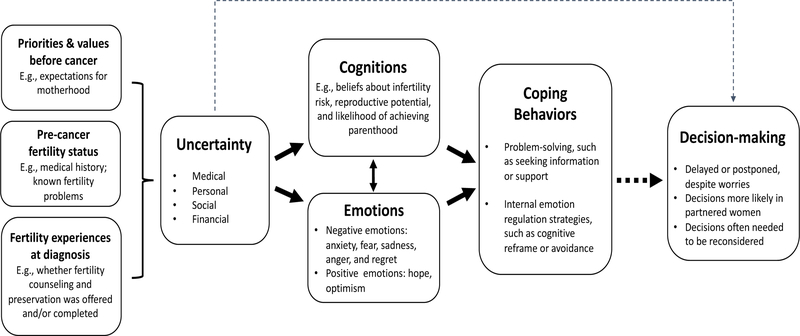Figure 1.
Decision-making process of young women considering family-building after cancer.
Model of adolescent and young adult female cancer survivors’ decision-making processes for family-building after cancer, based on a self-regulation theoretical framework. Survivors experience multiple sources of uncertainty after cancer (medical, personal, social, and financial) related to fertility, reproductive potential, and family-building options, which lead to cognitive and emotional reactions; primarily related to expected difficulties of achieving parenthood goals and negative emotions. Coping behaviors include problem-solving and emotion-regulation strategies to manage uncertainty and distress. Decision-making is often delayed or postponed (represented by a dotted line to represent a lack of engagement with decision-making processes) due to uncertainty about personal values related to family-building options, uncertainty about actionable “next step” options, or due to avoidance and postponement of fertility issues as a coping behavior to manage distress.

